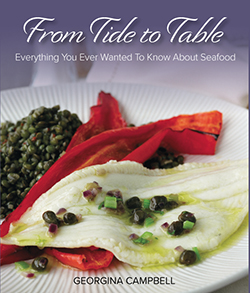Discovering Irish Food Culture at UCC
Applications are open for UCC’s Postgraduate Diploma in Irish Food Culture. Recent graduate, food writer Kate Ryan, gives her perspective on why it’s never too late to return to college!

I have just received news I will be awarded a First for my Postgraduate Diploma in Irish Food Culture! I’m delighted, naturally, but also hugely surprised. You see, it had been two whole and fleeting decades since academia and I last parted company, and I had convinced myself there would never be a good time to go back. I mean, what would I study? How could I find the time? Could I see it through the to the end? Who am I trying to convince?
That all changed in 2019 when I signed on the dotted line to begin a new course of study at University College Cork. Little did I realise that doing so would result in one of the most rewarding experiences of my adult life: as a student – a mature student!
The Postgraduate Diploma in Irish Food Culture, (PDIFC), the first of its kind in Ireland, is a trans-disciplinary course that explores the idea of an Irish Food Culture through a diverse range of studies: history, folklore, policy, science, nutrition, philosophy, geography, and literature. It is a two-year course, part-time with one three-hour lecture per week plus a recommended 12 hours for self-guided reading, research, and coursework completion. In addition, four full-day guided workshops and field trips [pre-Covid images supplied] pepper the calendar, usually on Saturdays. The PDIFC sits at point 9 on the NFQ scale – equivalent to a Masters.
Over two years and eight course modules, rarely is the question “What is Irish Food Culture” tackled head on – rather the learning is lateral and expansive, steering you away from simple questions, binary answers and the familiar to encouraging an embrace of the murk: the less simplistic, the complex, and the unfamiliar.
.jpg) The Programme Manager is Regina Sexton, a respected culinary historian, and she teaches the module on Irish Food and Culinary History. The other seven modules are taught by a small army of UCC academics and lecturers, all leaders in their field of research. It is rare to have access to such a rich seam of knowledge, thought, and research - that alone is like an adrenaline shot to the brain! Against this backdrop, students are encouraged to build their own learning experience – like a net cast wide and gradually hauled back filtering, understanding, questioning, positing arguments, building a new foundation for your own new-found knowledge.
The Programme Manager is Regina Sexton, a respected culinary historian, and she teaches the module on Irish Food and Culinary History. The other seven modules are taught by a small army of UCC academics and lecturers, all leaders in their field of research. It is rare to have access to such a rich seam of knowledge, thought, and research - that alone is like an adrenaline shot to the brain! Against this backdrop, students are encouraged to build their own learning experience – like a net cast wide and gradually hauled back filtering, understanding, questioning, positing arguments, building a new foundation for your own new-found knowledge.
Good learning should result in coming away with bigger and better questions than you began with. The PDIFC delivers that in abundance. Because of what I have learned, I want to continue to learn – to read even more, question more.
It also delivers on a rewarding collegial experience, too, and the opportunity to meet new people, like-minded people all brilliant in their own way, and from whom is impossible to not learn. When the course began in September 2019, little did we know six months later, how dramatically the way we learned would change.

While the country - the world - stopped moving, PDIFC went online and carried on uninterrupted. In hindsight, the sanctuary of learning ensured there was something to focus on, study to get lost in. Logging onto lectures every Tuesday evening became one normal thing in another abnormal week.
Revisiting those questions now that held me back so long, the answers now come easily:
• What would I study? The world and everything in it!
• How could I find the time? It’s hard to find time in the schedule, but it’s there, and you’ll find it.
• Could I see it through the to the end? Dig deep, but never underestimate your tenacity.
• Who am I trying to convince? No-one, I just did this for me.
Applications are open until 27th August 2021, course begins 21st September. Full course information, including fees and how to apply, can be found here: https://www.ucc.ie/en/ace-pdifc/
Kate Ryan, Flavour.ie







There are currently no comments
Leave a comment
Not a member? Register for your free membership now!
Or leave a comment by logging in with: